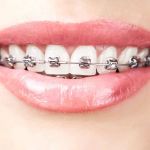What are the Common Medications Used to Treat Oral Ulcers, Such as Topical Creams or Mouthwashes?
Oral ulcers, commonly known as canker sores, can be a painful and uncomfortable condition affecting many individuals in the United States. This article, presented by Dentistry Toothtruth, aims to inform readers about the various medical treatments available for oral ulcers. These ulcers can significantly impact daily activities such as eating, drinking, and speaking. Though often non-threatening, they warrant timely attention and treatment with effective medical solutions to alleviate symptoms and promote healing.
Understanding Oral Ulcers and Their Causes
Oral ulcers are small, painful lesions that develop in the mouth. Though their exact cause often remains unclear, common factors include stress, minor mouth injuries, certain foods, and vitamin deficiencies. These sores typically heal within one to two weeks without intervention, but medical treatments can accelerate healing and reduce discomfort. Popular medications utilized in their treatment include topical creams and mouthwashes.
Topical Creams: An Effective Direct Application
Topical creams remain a prevalent choice for treating oral ulcers due to their direct application to the affected area. These creams often contain agents like corticosteroids, which reduce inflammation and pain. One commonly used cream is triamcinolone acetonide, available in dental pastes that form a protective layer over the ulcer.
Another alternative is amlexanox, an anti-inflammatory and anti-allergic agent, effectively reducing healing time. These creams should be applied as per healthcare professionals' guidance to maximize benefits and minimize potential side effects.
Mouthwashes: Comprehensive Coverage and Relief
Mouthwashes serve as another remedy by covering broader areas within the oral cavity and providing relief from pain and irritation. Antiseptic mouthwashes, such as those containing chlorhexidine, help reduce bacterial growth, preventing secondary infections in ulcers. Additionally, mouthwashes with anesthetic properties, like benzydamine hydrochloride, alleviate pain and discomfort.
Regular use of these mouthwashes, alongside good oral hygiene, can significantly aid in the healing process. However, consultation with a healthcare provider is essential to determine the appropriate type and frequency of use.
Over-the-Counter Options and their Effectiveness
Over-the-counter (OTC) medications are widely accessible and often used by individuals seeking immediate relief from oral ulcers. These options include medicated gels, liquids, and pain relief tablets, which can be easily purchased without a prescription. Products like benzocaine gels provide temporary numbness, relieving pain on contact.
However, while OTC medications offer convenience, they may not suit everyone, and prolonged symptoms should prompt a visit to a healthcare provider for tailored advice and treatment.
Prescription Medications: When Professional Intervention is Necessary
In severe cases where OTC options prove insufficient, prescription medications become necessary. These may include stronger corticosteroids, immunosuppressants, or even antibiotics if bacterial infections accompany the ulcers. The necessity for these medications emphasizes the importance of dental or medical consultation, especially for recurrent or persistent sores.
Professional healthcare providers at Dentistry Toothtruth can offer personalized treatment recommendations, ensuring effective management of oral ulcers.
Conclusion: Navigating Treatment Choices Effectively
To conclude, a wide range of medications is available for treating oral ulcers, including topical creams, mouthwashes, and both OTC and prescription options. While minor ulcers often heal naturally, underlying causes and symptom severity guide treatment decisions.
By consulting with dental professionals, like those at Dentistry Toothtruth, individuals can develop an effective treatment strategy tailored to their specific needs. This proactive approach not only ensures faster healing but also minimizes the likelihood of recurrence, empowering individuals to manage their oral health effectively.




 Pacer Dental P.C.4.0 (130 review)
Pacer Dental P.C.4.0 (130 review) Village Family Dentistry4.0 (451 review)
Village Family Dentistry4.0 (451 review) Jay Freedman, DDS & Associates PC5.0 (288 review)
Jay Freedman, DDS & Associates PC5.0 (288 review) Dooley Dental: Edward J Dooley DMD, Dr Robert Scheddin DMD4.0 (162 review)
Dooley Dental: Edward J Dooley DMD, Dr Robert Scheddin DMD4.0 (162 review) Dr. Edward Rosenthal5.0 (109 review)
Dr. Edward Rosenthal5.0 (109 review) Summer Smile Dental South Gate4.0 (461 review)
Summer Smile Dental South Gate4.0 (461 review) The Importance of Oral Health Education During Pregnancy for a Healthy Pregnancy
The Importance of Oral Health Education During Pregnancy for a Healthy Pregnancy Best Tips for Brushing Your Teeth Properly for Healthy Gums: Essential Techniques for Oral Health
Best Tips for Brushing Your Teeth Properly for Healthy Gums: Essential Techniques for Oral Health Why Skipping Dental Checkups Can Lead to Bigger Oral Health Problems
Why Skipping Dental Checkups Can Lead to Bigger Oral Health Problems Advantages of Porcelain Dental Restorations
Advantages of Porcelain Dental Restorations How Can Diabetes Cause Tooth and Gum Problems? Preventing and Managing Oral Health Issues
How Can Diabetes Cause Tooth and Gum Problems? Preventing and Managing Oral Health Issues Healthy Habits for Promoting Good Oral Health and Hygiene: Tips for a Healthy Smile
Healthy Habits for Promoting Good Oral Health and Hygiene: Tips for a Healthy Smile